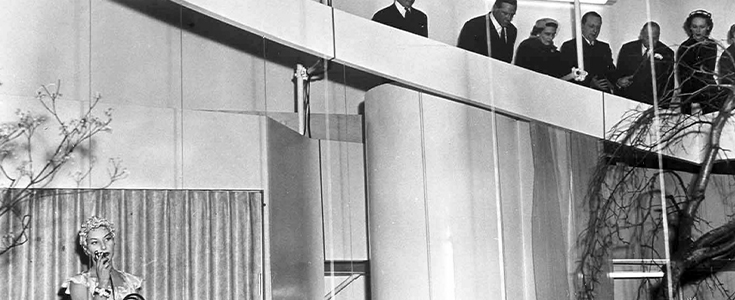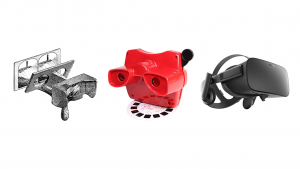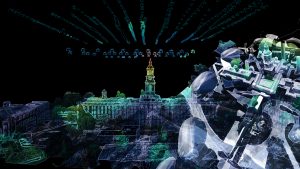Instructor: Gabrielle Printz
ARC 626
Fall 2020
DESCRIPTION:
In times of crisis, a notion of the future is something to cling to. Architects, engineers, and planners especially feel called to imagine and build alternate realities, novel forms of inhabitation, and lifestyles for known and unknown generations of “users.” At this moment of intensified uncertainty, we will resist speculating further, and instead, consider “future” as a representational concern and a technical endeavor that weighs on the present.
This seminar will rummage through the intellectual domain of technology in architecture in the 20th and 21st centuries, with the goal of understanding the social constitution of tech, its dimensions of power, and thus its impossible neutrality in the conceptualization and manifestation of “the future.” With renewed interest in a history of speculations, we will re-evaluate contemporary conditions of life in the information environment (remote, viral, policed, monetized…). What—or whose—notion of progress has brought about this moment? How has the promise or threat of given futures structured architectural and technological interventions in “natural” and “built” environments? How do architects absorb and revitalize notions of human mastery, scientific objectivity, and the imperialist ethic of the “pioneer”? How might we engage with futurisms posed against states of surveillance, extraction and exploitation? How have different thinkers positioned technology as enabling or foreclosing other ways of being?
In order to evaluate the social-, political-, and spatial- situatedness of technology—both through its pasts and its possibilities—we will have to consult disciplines and working forms beyond architecture, including: science and technology studies, media studies, geography, political theory, critical race theory, sociology, anthropology, cultural criticism, journalism, performance studies, radical art practices and their DIY publications, Afrofuturist filmmaking, cyberfeminist manifestos, low-budget music videos, high-budget exhibitions, VR projects and more. We will also return to important texts and architectural experiments from the 1960s onward as landmarks in the forward trajectory of design, or repetitions and revisions of the Corbusian Esprit Nouveau. Feminist, anti-racist, decolonial, and anticapitalist perspectives will inform our reading of the often dominating conditions of ubiquitous computing and visions of liberation through tech. And we will consider all that with the hope of preparing suspicious, careful, and caring designers who must, in the end, find ways to intervene and to make more equitable futures.
Given the multifarious nature of “future,” seminar topics will cover a broad territory: from off-grid shelters to “smart cities,” the Fun Palace to policing training simulations, Sant’Elia to Princess Nokia. Alongside readings and seminar discussions, participants will develop independent research around the themes of the class, in order to form their own critical analyses of future-making projects.



